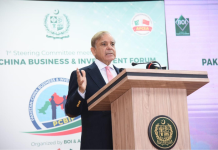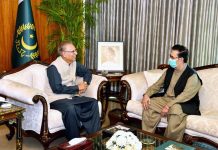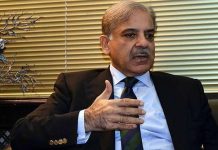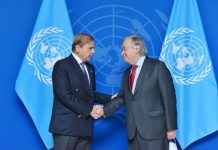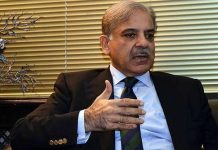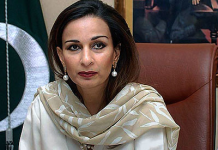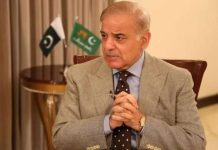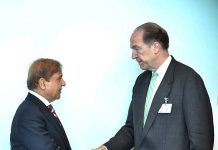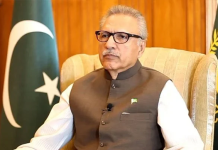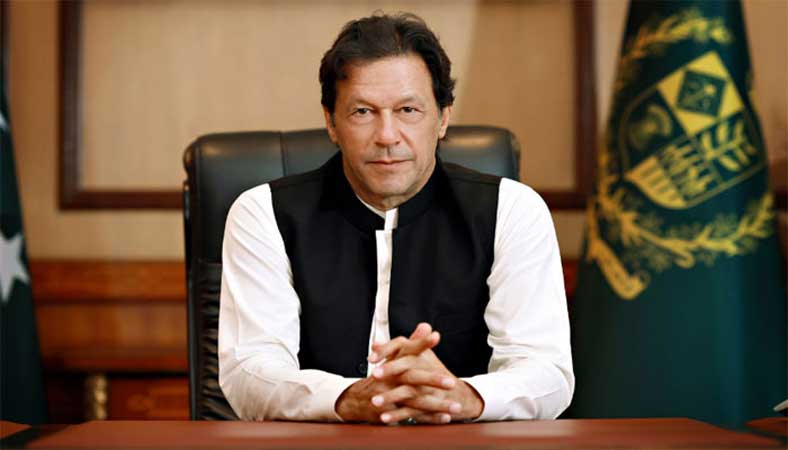
The 81st Pakistan Day was celebrated across the country with great national spirit and enthusiasm despite the coronavirus pandemic on Tuesday. The day dawned with gun salutes and special prayers in mosques for the progress and prosperity of Pakistan, the liberation of Indian Occupied Kashmir and the eradication of Covid-19. The nation renewed its pledge to work with dedication and professional commitment besides paying rich tributes to national heroes of the Pakistan Movement for their sacrifices.
The nation paid tributes to leaders of the Pakistan Movement including Father of the Nation, Muhammad Ali Jinnah and national poet, Dr Allama Iqbal for their matchless services for Pakistan. In a prestigious change of guard ceremony at the mausoleum of Allama Muhammad Iqbal, a smartly turned out contingent of Pakistan Air Force assumed ceremonial guard duties with a traditional spirit. In Karachi and Lahore respectively, officials, parliamentarians and people from all walks of life thronged their tombs.
The national flag was hoisted atop of all important and historic buildings which were decorated with colourful lights and buntings to mark the day. The youth decorated their vehicles, motorcycles, cars and motorbikes while residents decorated their houses, bazaars and markets to express their love for the country. Meanwhile, restrictions on public gatherings due to coronavirus pandemic have provided a new avenue to highlight the sentiments of patriotism among Pakistanis who expressed their love for the country and its founding leaders, as a buzz was created on social media including Facebook and WhatsApp with frequent sharing of posts related to Pakistan Day, Quaid-e-Azam, other freedom movement leaders and the armed forces.
Pakistani flags were hoisted for the third consecutive day in Srinagar, Kulgam, Shopian and other parts of the occupied territory, greeting Pakistani people and government on the Pakistan Day on Tuesday. According to Kashmir Media Service, Pakistani flags and posters were hoisted to celebrate 23 March, the Pakistan Day, in the occupied territory. The posters carried pictures of Quaid-e-Azam Muhammad Ali Jinnah, Prime Minister of Pakistan Imran Khan, Army Chief General Qamar Javed Bajwa and Hurriyat leaders including Syed Ali Gilani.
The posters were displayed by Jammu and Kashmir Liberation Alliance and Ahl-e-Jammu and Kashmir, Kashmir Resistance Movement, Kashmir Hurriyet Youth Forum and Jammu and Kashmir Justice League. Political experts say the posters are a message to India that it cannot weaken the Kashmiris’ liberation movement through its military occupation and brutalities. They said that the posters have well explained the Kashmiris’ demand for freedom from Indian illegal occupation.

